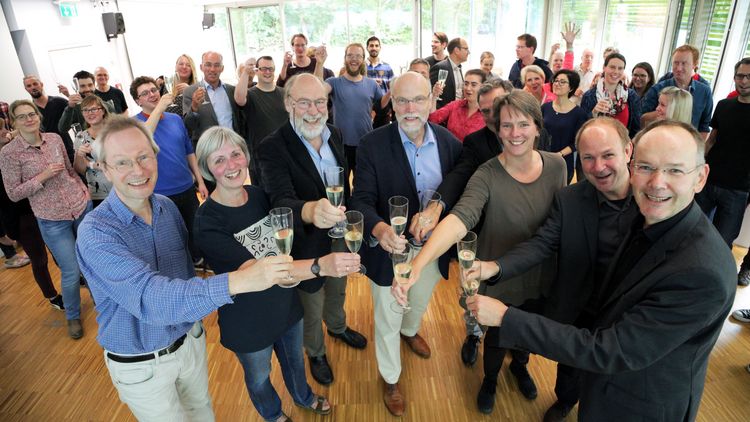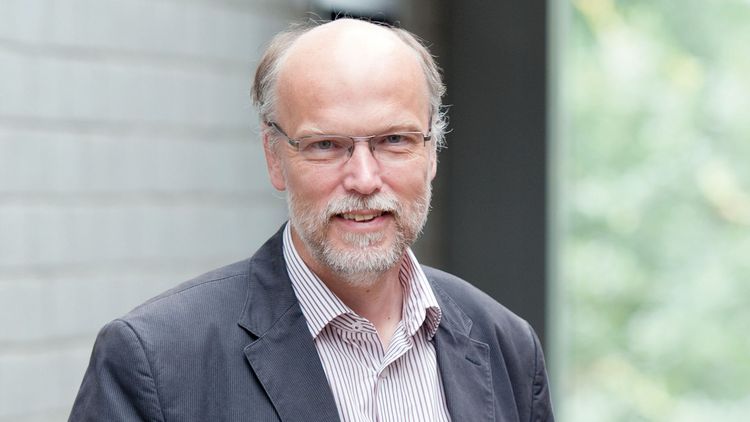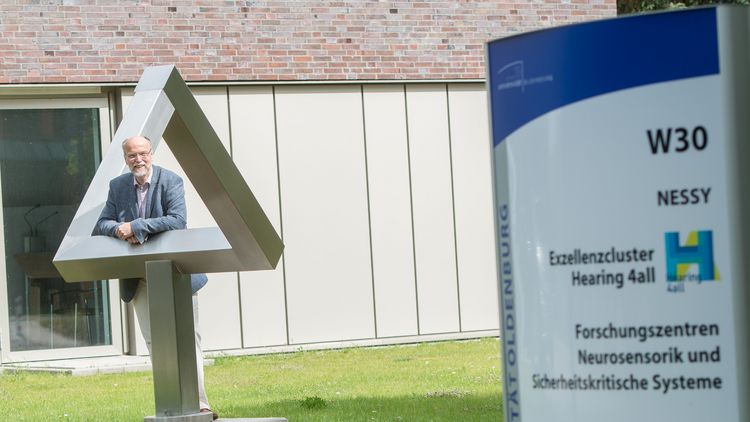The Cluster of Excellence application “Hearing4all: Medicine, Basic Research and Engineering Solutions for Personalized Hearing Care” has secured seven years of funding in the Excellence Strategy, which is financed by the Federal State and the Länder. The total amount of funding applied for was 55 million euros. The Oldenburg scientists once again compiled their application together with hearing researchers from Hannover and based it on the results of the current Excellence Cluster. Of the 88 finalists across Germany who applied for the “Cluster of Excellence” funding line, 57 were awarded funding.
“This latest success for the “Hearing4all” Cluster is proof of the high quality of hearing research in Lower Saxony. The research group is continuing on its path towards personalised medicine with basic research and approaches for applications. With this work the researchers are improving the quality of life of many patients,” said Lower Saxony’s Minister for Science and Culture Björn Thümler after the announcement of the successful clusters.
Absolute top-level research
“We look on our hearing research with enormous pride. The continued funding is a major success for our University, our medical faculty and our strong partners,” said University President Professor Hans Michael Piper commenting on the decision. “The hearing researchers can now build on their years of experience and scientific competence and continue to work towards their ambitious goals.”
“After the 2012 decision we can now again count ourselves within the circle of absolute top-level research in Germany,” said the coordinator of the cluster, Oldenburg physicist and physician Professor Birger Kollmeier. “We will continue our work with great energy and develop solutions that are tailored to the needs of patients with all forms of hearing impairment. Our goal is modern, data-driven science and high-standard precision medicine.”
Constantly developing treatment options
The clinical coordinator of the new cluster is Professor Thomas Lenarz, director of the Department of Otorhinolaryngology at Hannover Medical School (MHH). “The green light for continuing our hearing research within the Excellence funding programme is on the one hand recognition for the research we have already done. On the other hand, we are glad to accept the challenge of continuing our research into the fundamentals of hearing and of developing new treatment options using and based on cochlea implants,” Lenarz stressed.
Hearing loss is the most common chronic ailment that affects the human senses, and in an ageing society more and more people suffer from this condition. Impaired hearing can have a considerable impact on people’s quality of life and even lead to social isolation. The Oldenburg researchers have already worked with their scientific partners for many years to constantly improve hearing aid technology and other treatment options for people with hearing loss – from mild impairment to deafness. As a result, in recent years the Hearing4all researchers have developed key building blocks for improved diagnostics, hearing systems and assistive technologies, including multilingual speech tests, implants for the section of the midbrain that processes hearing signals, and the possibility of using machine learning to predict the benefits of a hearing aid for specific patients.
From basic research to hearing technology
In the new Excellence Cluster the scientists will divide their activities into four lines of research which on the one hand reflect the chain of development from basic research to applied hearing technology and on the other hand reflect the different degrees of hearing impairment. In the first line of research, the scientists will investigate the complex interaction between the hearing, perception and processing of acoustic signals in the brain over a person’s entire lifetime, and thus enhance the overall understanding of hearing. The second line of research encompasses IT-based research, with the goal of establishing a virtual, multilingual hearing clinic. In the third, researchers will develop individualised, targeted diagnostics and treatment procedures for patients with moderate to severe hearing loss and total deafness. Based on the scientific and technological findings of these activities, in the fourth line of research an entirely new system technology for the hearing aids of the future will be created.
Twenty-five neuroscientists, physicians, psychologists, linguists, physicists and engineers from the University of Oldenburg, the Leibniz University of Hannover and the Hannover Medical School are participating in the new Excellence Cluster. In addition, the Jade University of Applied Sciences, Hörtech GmbH, the Hörzentrum research institutes in Oldenburg and Hannover, the Fraunhofer IDMT Branch Hearing, Speech and Audio Technology, the Fraunhofer Institute for Toxicology and Experimental Medicine and the Hanse-Wissenschaftskolleg Institute for Advanced Study (HWK) in Delmenhorst are also participating in the project.
“Hearing4all” is among the world’s leading centres for medical technology, hearing research, audiology, and medical diagnostics and treatment. Around 80 percent of all hearing aids worldwide feature know-how from Oldenburg. The current Cluster of Excellence has received almost 30 million euros in funding since 2012. The Ministry for Science and Culture of Lower Saxony and the Volkswagen Foundation also provided one million euros in funding for this Cluster, which will be completed at the end of 2018.
Marine researchers also successful
As well as the hearing researchers other Oldenburg scientists are also among winners of the latest round of approvals: the geochemist Professor Thorsten Dittmar and marine ecologist Professor Helmut Hillebrand of Oldenburg University’s Institute for Chemistry and Biology of the Marine Environment were co-applicants for the Excellence Cluster “The Ocean Floor: Earth’s Unchartered Interface”, which has also been approved for funding. The topic Dittmar – together with his partners – will focus on is “The Ocean Floor as Receiver”. The researchers will study the various processes that regulate the flow of substances from the ocean’s surface to the deep-sea level. In the context of climate change the focus will be on the so-called “biological carbon pump” – the process by which carbon, in the form of carbon dioxide, is extracted from the atmosphere by algae and then finds its way into the deep sea, so that it is effectively removed from active cycles. Hillebrand, a biodiversity expert, is involved in the priority area “The Ocean Floor as Recorder”. Here, the scientists’ goal is to compare the current changes in biodiversity with those that have occurred over the geologic time scale. For this they will evaluate data that covers periods of thousands and even millions of years.
About the Excellence Strategy:
With the Excellence Strategy, the Federal Government of Germany and the Länder want to continue the projects begun with the Excellence Initiative (2005 to 2017) with the goal of strengthening and developing Germany’s universities. The strategy aims to support outstanding scientific achievements, enhance research profiles and promote cooperation within the research system in order to strengthen Germany’s status as a research location. There are two funding lines: the Clusters of Excellence and the Universities of Excellence. The funding period for the Clusters of Excellence will commence on 1 January 2019. The duration is seven years.





